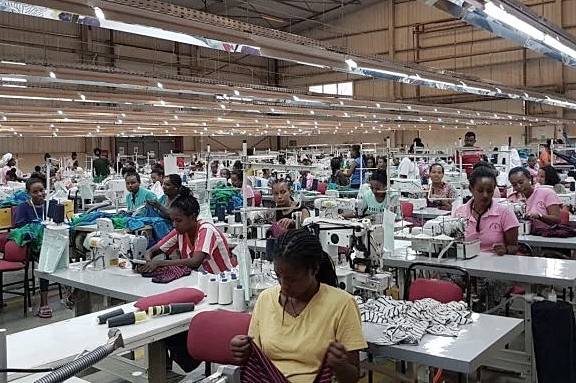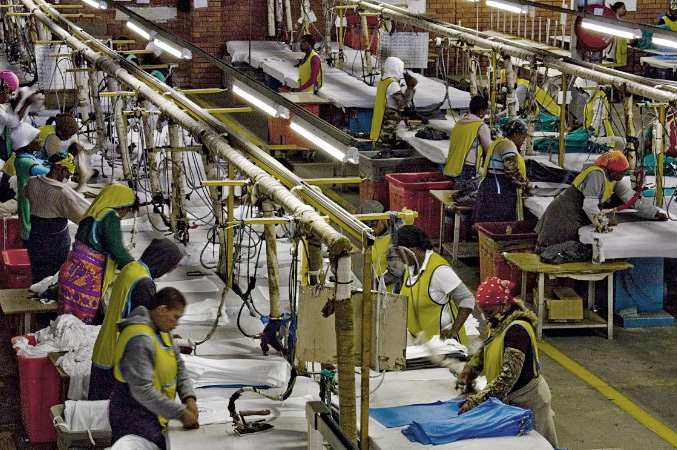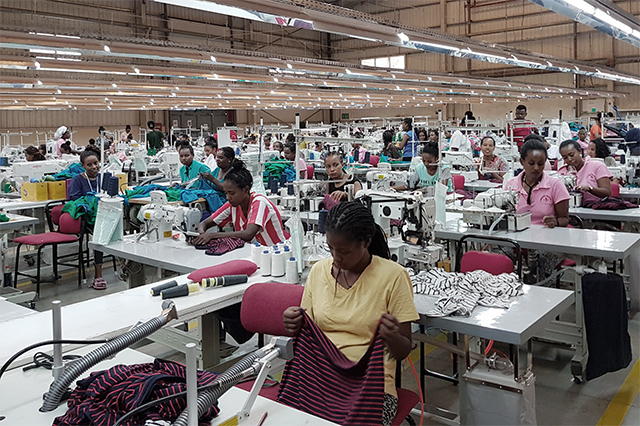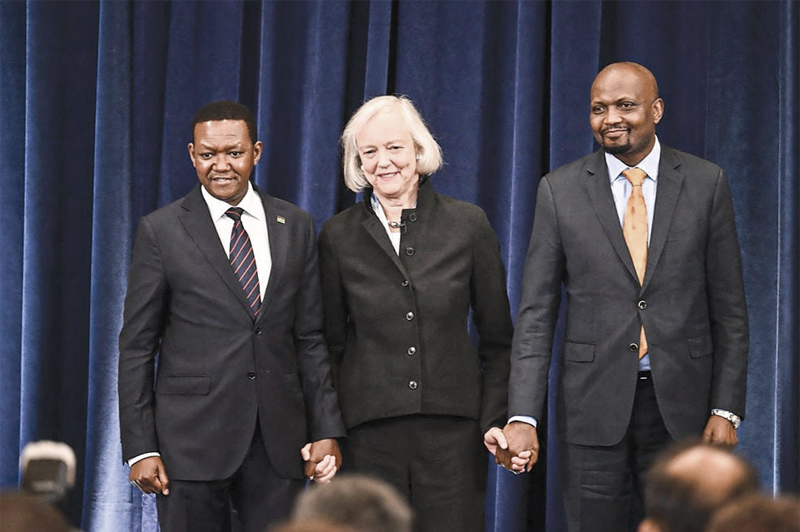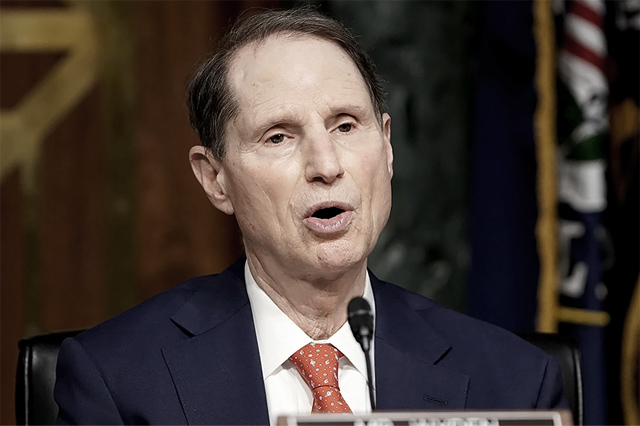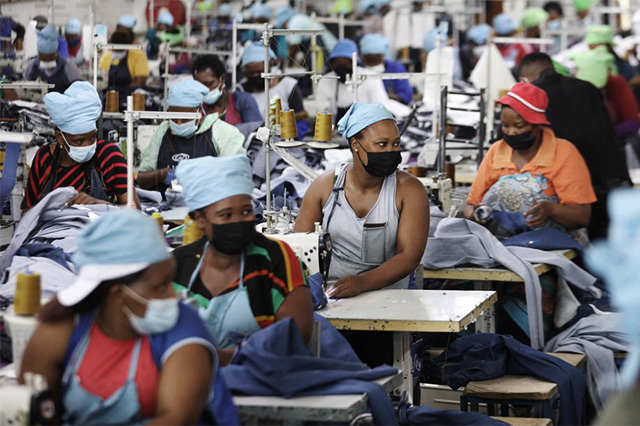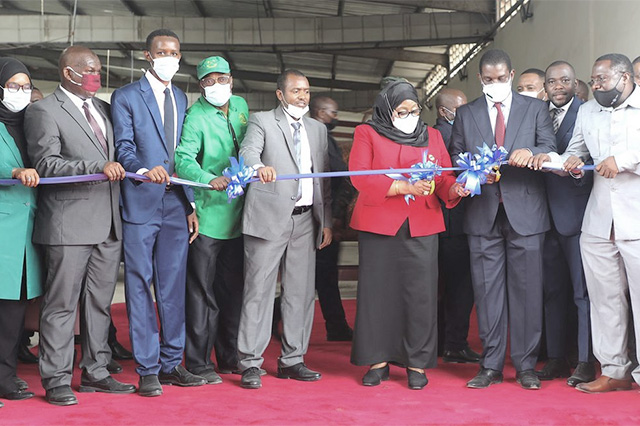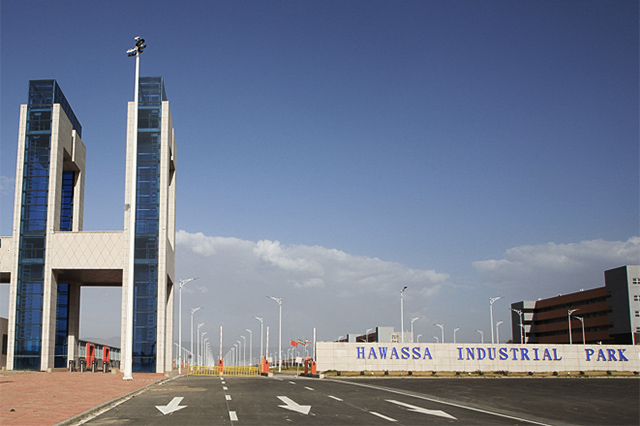Looming AGOA expiry puts US apparel buyers, off say experts
The Office of the US Trade Representative is backing a renewal of AGOA ahead of its September 2025 expiration, but calls for "tweaks" have faced pushback from experts that say it is more important to secure its timely and long-term renewal given its huge benefits for US apparel brands and retailers.
A new report from the Office of US Trade Representative (USTR) has revealed US trade with African Growth and Opportunity Act beneficiary countries (AGOA) has increased over the past two years.
But the programme is set to expire in September 2025, concerning apparel sourcing executives and leading to a decline in sourcing from those regions.
AGOA provides eligible sub-Saharan African countries with duty-free access to the US for more than 1,800 products in addition to the more than 5,100 products eligible under the Generalized System of Preferences. Although GSP expired on 31 December 2020, tariff lines covered by GSP remain eligible for AGOA beneficiaries.
According to the report, total goods trade between the US and sub-Saharan Africa totalled $47.5bn in 2023, up 6.2% from 2021. US imports under AGOA totalled $9.7bn in 2023, up from $6.8bn in 2021 but down from $10.2bn in 2022.
Among the top imports to the US is apparel which totalled $1.1bn during the period.
Ahead of the expiration of the deal, the USTR says it “strongly supports” an extension. That said, it is looking to modernise the programme to deal with challenges like “growing inequality, supply chain fragility, and the climate crisis” and to support goals like increasing integration under the African Continental Free Trade Area, improving AGOA utilisation rates, deepening economic engagement with countries that graduate from AGOA, and providing additional tools for assessing and reinstating eligibility.
The USTR is hosting the 21st US–sub-Saharan Africa Trade and Economic Cooperation Forum (AGOA Forum) in Washington, D.C., from 24 to 26 July 2024.
“AGOA has been the cornerstone of our economic partnership with sub-Saharan Africa for over 20 years,” said USTR Ambassador Katherine Tai. “This forum is an opportunity to discuss how we can make the programme more effective to address today’s challenges and deliver real benefits to more people across the continent.”
US apparel’s future with AGOA
Dr Sheng Lu, professor of apparel studies at The University of Delaware, says studies consistently show AGOA has played a critical role in promoting US apparel imports from Sub-Saharan African (SSA) countries, particularly through the agreement’s duty-free benefits and the liberal rules of origin for least developed members.
And, as US fashion companies seek to diversify their sourcing base beyond Asia, AGOA members have become popular alternative destinations with significant potential.
But he too is concerned about the approaching expiration of AGOA next year which he says is creating uncertainty among US fashion companies and prompting them to hold back on sourcing from the region.
“Notably, despite the positive growth in 2023, US apparel imports from AGOA members in the first five months of 2024 declined sharply by 13.1% in value and 9.2% in quantity, much worse than the overall market trend. Likewise, US fashion companies are unwilling to commit to long-term investments in the region, such as building much-needed textile manufacturing facilities, due to the temporary nature of the agreement.”
He also raises concerns about the stated aims of the USTR of a “timely reauthorisation and modernisation of AGOA” which he says trying to achieve against the backdrop of a presidential election is “anything but easy”.
“Additionally, stakeholders have differing opinions on how to further “modernise” AGOA, especially given many AGOA members’ poor human rights records and political instability.”
Ethiopia has remained ineligible for AGOA benefits having been one of the key beneficiary countries until 2022 following concerns over human rights abuses.
There were hopes it would be reinstated after the agreement of a ceasefire between Ethiopian and rebel Tigray governments.
But the Ethiopian government and analysts were pessimistic at the time, that the US government had any plans to reinstate the Horn of Africa country into the African Growth and Opportunity Act (AGOA).
Earlier this year, the US apparel and footwear sector urged a 16-year extension of the programme, calling it “impactful” and “timely” as companies are looking to diversify away from China now more than ever.
AAFA president and CEO Steve Lamar, said at the time: “AGOA renewal would bring quality work opportunities for African workers, many of whom are women, as companies commit to retain or grow orders from African factories as vital partners in their sourcing matrices.”
Beth Hughes, vice president of trade and customs policy at AAFA, highlighted the urgency of the situation, cautioning against the potential repercussions of delaying AGOA renewal. She said: “Sourcing decisions are already being made for goods that will be shipped after AGOA’s current expiration.
“As we fast-approach the September 2025 expiration date, we do not want to see trade begin to drop off as sourcing is shifted away from African countries. The current expiration of the Generalized System of Preferences – which we are hoping will also be renewed for a long term during 2024 – is fuelling speculation that a similar fate awaits AGOA. Action now, well before the programme expires, eliminates that uncertainty.”
Lu shares a similar sentiment, noting that while it is “critical” to recognise where improvements can be made to the current version of AGOA, the primary need for AGOA members and most US fashion companies is not necessarily a “perfect” agreement but rather a timely and long-term renewal.
“Such a renewal would give the private sector the confidence to continue investing in SSA countries and committing to sourcing from the region. Discussing other long-term objectives, such as improving the genuine competitiveness of AGOA members’ apparel exports and building a more vertical regional supply chain, holds little meaning without first helping the region secure more sourcing orders.”


